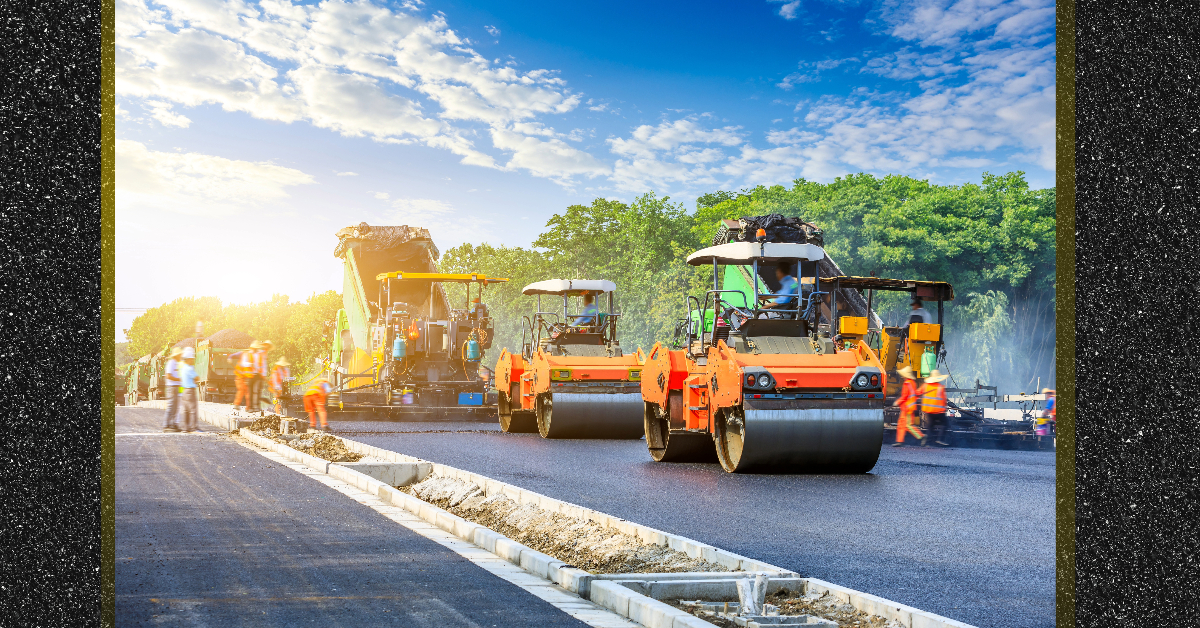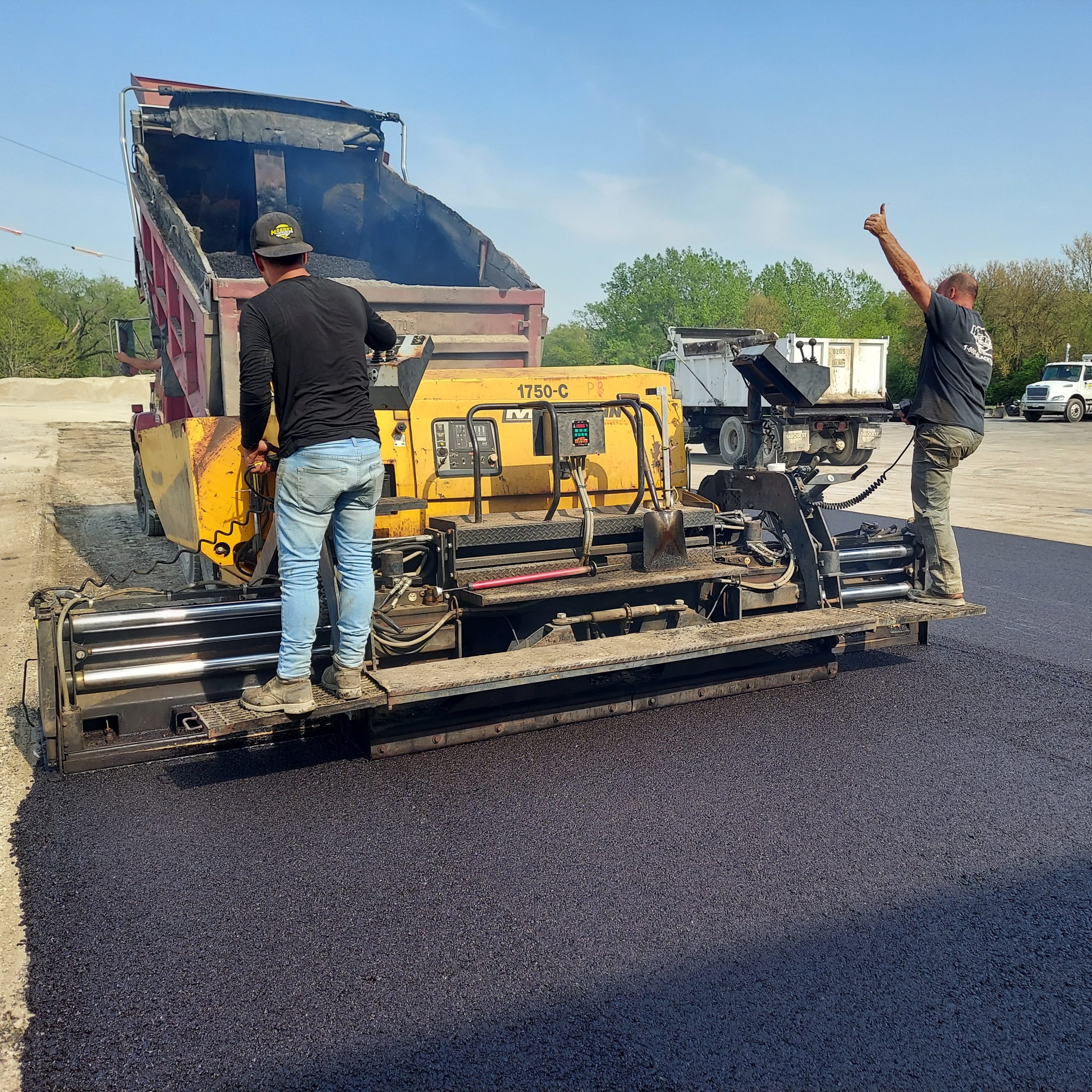Recognizing the Different Kinds Of Asphalt Paving Available Today
In the realm of building and construction and framework, an extensive understanding of the various types of asphalt paving is crucial for optimal job end results. From the robust Warm Mix Asphalt, designed for high-traffic locations, to the eco conscious Porous Asphalt that assists in water management, each type presents distinctive benefits tailored to certain needs.

Hot Mix Asphalt
What makes warm mix asphalt a favored option for road building and construction and repairs? Warm mix asphalt (HMA) is favored for its sturdiness, adaptability, and efficiency under differing problems. Composed of a mix of accumulations and liquid asphalt concrete, HMA is produced at high temperature levels, usually in between 300 ° F and 350 ° F (asphalt paving acworth ga). This high-temperature application enables for ideal bonding and compaction, leading to a smooth, resilient surface that can endure heavy web traffic loads and adverse climate.
HMA's capability to be customized to details task demands is another significant benefit. Various gradations and formulas can be utilized to improve homes such as adaptability, resistance to deformation, and longevity. Furthermore, warm mix asphalt can be quickly set up and open up to website traffic, reducing disruption throughout construction.
Ecological factors to consider also contribute in the choice for HMA. The product is recyclable, and recovered asphalt pavement (RAP) can be reused, advertising sustainability in roadway building and construction practices. Generally, warm mix asphalt stands apart as a reliable alternative, efficiently providing a long-lasting, high-performance surface area that fulfills the demands of modern-day framework.
Cold Mix Asphalt
Cold mix asphalt is a versatile choice to hot mix asphalt, especially matched for specific applications such as patching and surface area treatments. This kind of asphalt is produced at ambient temperature levels, allowing for much easier handling and application without the need for extensive home heating devices.
Commonly composed of asphalt emulsions or lowerings, cold mix asphalt can be combined on-site or acquired pre-mixed. Its residential properties allow it to bind well with existing pavement, making it an effective option for fixing holes, fractures, and various other surface area problems. In addition, it can be applied in a range of weather, giving a functional alternative for year-round maintenance.

Nonetheless, while cold mix asphalt is ideal for short-lived solutions, it may not provide the same long life or resilience as warm mix asphalt under rush hour conditions. Thus, it is finest used for low-traffic areas or as a short-lived solution until even more permanent fixings can be carried out.
Cozy Mix Asphalt
While hot mix asphalt has long been the requirement for road building, warm mix asphalt (WMA) has actually become a cutting-edge alternative that balances performance with environmental factors to consider. WMA is generated at dramatically reduced temperatures-- normally in between 215 ° F and 275 ° F-- contrasted to warm mix asphalt, which is warmed to around 300 ° F. This decrease in temperature level not only reduces power usage however also reduces greenhouse gas exhausts throughout manufacturing.
The innovation behind WMA includes using ingredients or strategies that make it possible for far better workability at reduced temperature levels. These can consist of chemical ingredients, foaming procedures, or a mix of both. As a result, WMA maintains the necessary buildings for durability and efficiency while offering a more eco-friendly alternative.

Permeable Asphalt
Permeable asphalt stands for a forward-thinking technique in pavement style, discover this focusing on both functionality and environmental sustainability. This cutting-edge material is particularly crafted to permit water to penetrate through its surface, successfully lowering drainage and advertising groundwater recharge. As an outcome, porous asphalt is an exceptional selection for locations susceptible to flooding or where stormwater monitoring is essential.
The composition of porous asphalt differs from traditional asphalt, including a greater percent of gaps that promote water drainage. This residential or commercial property not only minimizes surface water build-up however also helps mitigate issues like hydroplaning and enhances automobile grip during wet conditions. asphalt paving acworth ga. Additionally, permeable asphalt can add to city warm island reduction, as it permits better dissipation and cooling impacts in metropolitan environments
In terms of setup, permeable asphalt requires cautious consideration of underlying water drainage systems to guarantee ideal performance. Maintenance generally involves normal evaluations and cleaning to avoid obstructing from debris, which can harm its permeability. Overall, permeable asphalt works as a helpful hints lasting paving solution that lines up with modern environmental objectives, making it an increasingly preferred selection for both public and personal projects.
Rubberized Asphalt
Rubberized asphalt is an innovative paving material that integrates recycled rubber, typically sourced from scrap tires, right into the asphalt mix. This innovative technique not just enhances the performance of conventional asphalt yet also promotes ecological sustainability by recycling waste materials. The addition of rubber boosts the adaptability and resilience of the pavement, making it immune to fracturing and contortion under differing temperature conditions.
One of the substantial benefits of rubberized asphalt is its capability to reduce sound pollution. The rubber bits soak up audio, resulting in quieter roads, which is specifically beneficial in urban areas. Moreover, this sort of asphalt supplies improved skid resistance, enhancing security for lorries.
Rubberized asphalt likewise contributes to expanding the life expectancy of roadway surfaces, causing minimized upkeep expenses over time. This longevity is particularly valuable for high-traffic areas where wear and tear are accelerated. Furthermore, its resistance to wetness infiltration aids decrease the threat of water damage, additionally improving resilience.
Final Thought
In look at this now recap, the variety of asphalt paving types-- Warm Mix Asphalt, Cold Mix Asphalt, Cozy Mix Asphalt, Porous Asphalt, and Rubberized Asphalt-- each meet unique functions that accommodate diverse construction and maintenance demands. These alternatives not only boost road high quality however likewise add to sustainability via minimized power intake and boosted water administration. Comprehending these distinctions is critical for selecting the proper asphalt kind, eventually ensuring effective and efficient paving services in numerous environments.
From the durable Hot Mix Asphalt, created for high-traffic locations, to the environmentally mindful Porous Asphalt that assists in water administration, each type presents distinctive benefits tailored to certain requirements.Generally made up of asphalt solutions or lessenings, cool mix asphalt can be combined on-site or purchased pre-mixed.While warm mix asphalt has long been the criterion for roadway construction, cozy mix asphalt (WMA) has emerged as an innovative choice that stabilizes efficiency with ecological considerations.Rubberized asphalt is a sophisticated paving product that includes recycled rubber, generally sourced from scrap tires, into the asphalt mix.In recap, the range of asphalt paving types-- Warm Mix Asphalt, Cold Mix Asphalt, Warm Mix Asphalt, Porous Asphalt, and Rubberized Asphalt-- each satisfy unique features that cater to varied building and maintenance requirements.